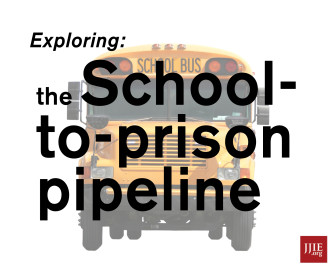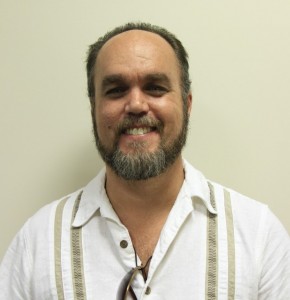 For some time I have read about the “school to prison pipeline,” an idea that links zero tolerance policies, school policing, disproportionate minority contact with disciplinary processes, and other factors to the increased incarceration of minority youth. The basic idea is that the system formed by these practices and structures contributes to putting more kids in prison.
For some time I have read about the “school to prison pipeline,” an idea that links zero tolerance policies, school policing, disproportionate minority contact with disciplinary processes, and other factors to the increased incarceration of minority youth. The basic idea is that the system formed by these practices and structures contributes to putting more kids in prison.
Lately, I have come across a similar term, the cradle to prison pipeline. This is the phrase trademarked by the Children's Defense Fund (CDF).
It is daunting to consider that societal structures and policies can have such an affect on a newborn. We can reasonably predict the chances of an infant growing up and being incarcerated based on its race. I find this very disturbing. Consider these highlights of their 2009 report:
A Black boy born in 2001 has a 1 in 3 chance of going to prison in his lifetime; a Latino boy a 1 in 6 chance; and a White boy a 1 in 17 chance. A Black girl born in 2001 has a 1 in 17 chance of going to prison in her lifetime; a Latino girl a 1 in 45 chance; and a White girl a 1 in 111 chance.
Identified factors besides race include: pervasive poverty, inadequate access to health care, gaps in early development, unequal educational opportunities, abuse and neglect, untreated mental health issues, and an overburdened juvenile justice system that includes the school to prison pipeline.
Learn more about school discipline reform trends at the Juvenile Justice Resource Hub HERE.
Reports like these are discouraging to read, and many of us turn away from such evidence. One go-to position for many is that life is about personal responsibility. By the time these people are old enough to commit crimes it is easy to say that they deserve what they get. Few people though have the heart to look at a little baby and say that he deserves to have a one in three chance of going to prison because he is black. Even the staunchest law–and–order proponent can see the inherent injustice of the situation.
Our problem is that issues like these involve a type of justice that is usually unaddressed by laws and courts: social justice. Social justice is difficult to solve through legislation. There are clear victims of injustice, but no clear perpetrators. There is no one to take to trial when kids in areas of high poverty don’t have as many experienced teachers as kids who live in richer areas. Nobody goes to prison, except the kids themselves, when children grow up in less stable homes.
 What can we do about problems with such deep roots? The CDF proposes some approaches. Some particular solutions may be debatable, but I think most of us can agree that the underlying goals are worth pursuing.
What can we do about problems with such deep roots? The CDF proposes some approaches. Some particular solutions may be debatable, but I think most of us can agree that the underlying goals are worth pursuing.
- End poverty by creating jobs that offer livable wages, increasing the minimum wage, expanding job training programs, making college affordable for every student, and expanding income supports such as the Child Tax Credit.
- Ensure all children and pregnant woman have access to affordable comprehensive health and mental health coverage and services.
- Make early childhood development programs accessible to every child by ensuring such programs are affordable, available and of high quality.
- Help each child reach his/her full potential and succeed in work and life, by ensuring our schools have adequate resources to provide high quality education to every child.
- Expand prevention and specialized treatment services for children and their parents, connect children to caring permanent families, improve the quality of the child welfare workforce and increase accountability for results for children.
- Reduce detention and incarceration by increasing investment in prevention and early intervention strategies, such as access to quality early childhood development and education services and to the health and mental health care children need for healthy development.
End poverty, take care of kids, help people avoid going to prison. These might be outside of the scope of what people think of when we talk about justice, but they are not. If we can focus on these there may be more justice for all of us in the end.
